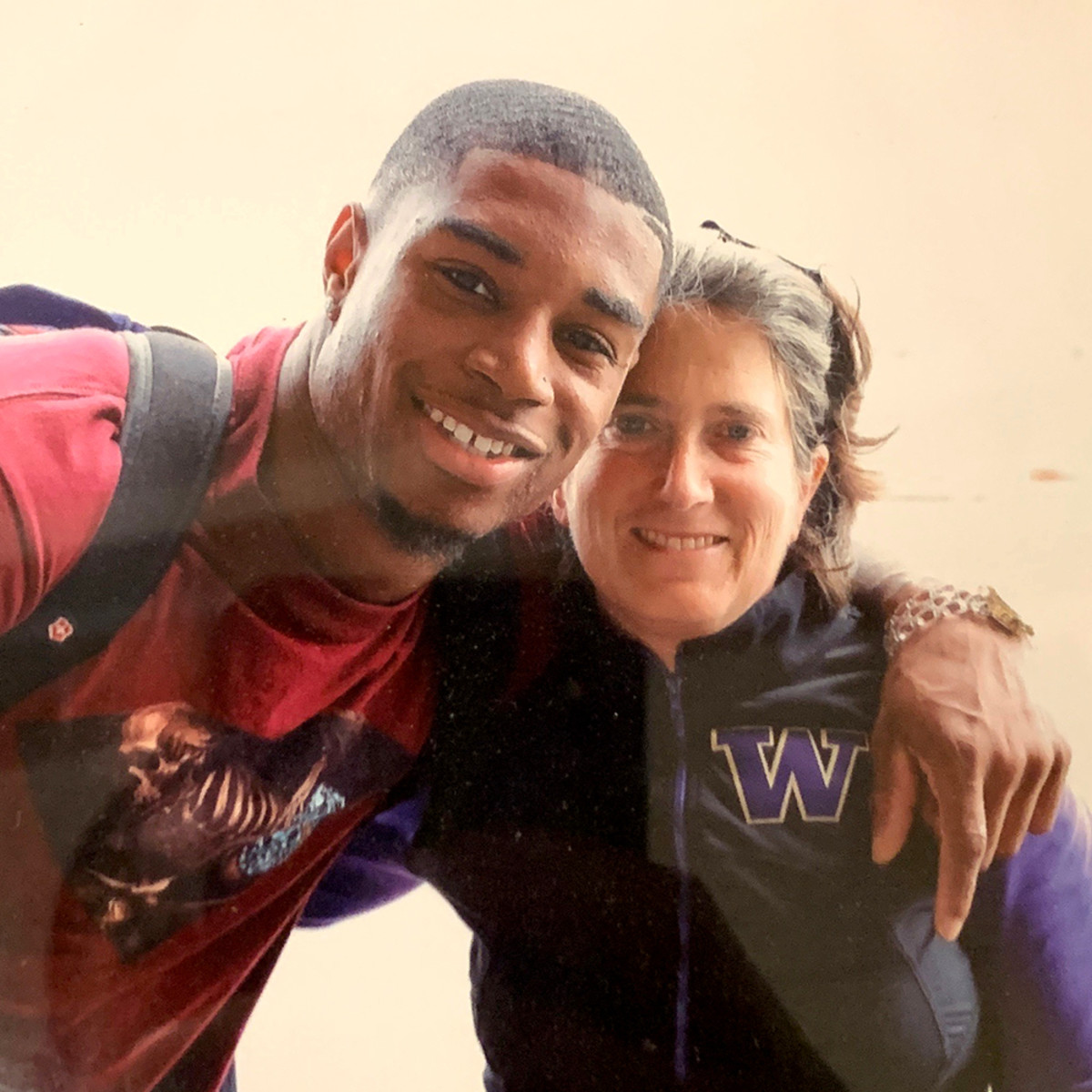Where Is Illini LB Milo Eifler Getting His COVID-19 Info? A Cal-Berkeley Public Health Expert He Calls ‘Mom’
CHAMPAIGN, Ill. -- To understand the concerns of Illinois linebacker Milo Eifler, it’s important to know where and from whom he’s getting his factual information from.
Before arriving back on the University of Illinois campus for the voluntary workouts that Illinois football and basketball players have begun to file in for since early June, Eifler has been in constant contact with a public health expert in his home state of California.
Eifler is on the phone daily with Rachel Morello-Frosch, who has a master’s and doctorate degree in public health and is a research professor at University of California-Berkeley in the school’s department of public health. In an effort to save time, Eifler simply calls Morello-Frosch "mom". And mom is where Eifler said Wednesday, in a Zoom video conference with local and statewide reporters, he’s getting his “real deal facts” about the spread of the coronavirus and the dangers of not practicing social distancing, which are regulations that seem impossible in the context of playing tackle football.
“I was talking to my mom and as you know, she works at Cal-Berkeley as a professor and she does a lot with health. So, I’m just asking her questions and she’s telling me the real deal facts. I’m like ‘Dang, I didn’t know it was this severe.’” - Illinois linebacker Milo Eifler
Eifler is the adopted son of Morello-Frosch and Cal-Berkeley professor David Eifler. He didn't start playing organized football until his sophomore year in high school at Bishop O'Dowd High School in Oakland, California but fell in love with the game immediately. After being a highly-recruited prospect, Eifler transferred to Illinois from Washington after not being satisfied with his playing time following his redshirt-freshman season with the Huskies.

On My 22, Illinois athletics director Josh Whitman announced plans for football players to return to campus in June after he and other Illinois officials consulted with the Champaign-Urbana Public Health District, Carle clinic physicians, the McKinley Health Center, SHIELD (the university’s committee tasked with developing coronavirus testing protocols for the U of I campus) and the Big Ten Conference.
However, Eifler made it clear Wednesday he’s still debating whether to play during the 2020 season during a public health pandemic of arguably the worst and deadliest virus to hit this country in over 80 years.
“I don't know. That's kind of why I started this and [an Illinois athletics spokesperson] asked me if I wanted to talk [to the media] today and I said, 'Hell yeah'," Eifler said. "If there was a vaccine, Of course (I'll play). All college football players would be like, 'Put me in right now.’”
It would be nearly impossible for Eifler to miss out on the warnings sent out by Dr. Anthony Fauci on the health drawbacks of trying to play a college football season without a readily available vaccine and not inside a protected environmental human bubble.
In the interview with CNN in mid-June, Fauci laid out a comprehensive “bubble” system for professional football that he thinks might have an opportunity of working and would be similar to what the National Basketball Association and National Hockey League are attempting to work out in order to restart its 2020-21 seasons.
“Unless players are essentially in a bubble -- insulated from the community and they are tested nearly every day -- it would be very hard to see how football is able to be played this fall,” Fauci said to CNN.
Eifler, who is scheduled to graduate in December with a degree in sociology, wasn’t able to be definitive with reporters on whether he can commit to play in the 2020 season. The projected starting linebacker for Lovie Smith’s Illini defense knows the coronavirus doesn’t allow for such predictions when training camp is scheduled to start next month and the season opener against Illinois State is slated for Sept. 4.
“In the back of your head, you're like,'There's no vaccine, there's no way to, there's quarantining and after the quarantining, I guess I'm okay so I won't catch the virus again," Eilfer said. "But then there's long-term effects. There's always this back and forth, you know what I'm saying?”
Eifler also knows what disease and sickness can do to a family. Eifler’s mom, the doctorate professor he’s getting a lot of his COVID-19 from, is a two-time breast cancer survivor. Eifler represents his mother’s battle against beating breast cancer by wearing a noticeable pink mouthguard every time he takes the field.
"I wear that mouthpiece just as a symbol, as recognition of me playing for her, giving it my all because I know she does the same for me," Eifler said in 2019.
Eifler’s parents attended games this past fall as Illinois had a turnaround season that included the program qualifying for a bowl game for the first time in six years. Now, it is Eifler pointing to his love for his parents as a reason for him questioning whether it is safe for him to run out of the Memorial Stadium tunnel with his teammates on the Friday night of Labor Day weekend to open this 2020 season.
“Coming from the personal side, there's questions (I still have) like, 'What if I catch (COVID-19) and I can't go see my parents anymore?' That's kind of where I'm at right now,” Eifler said.
